University Accounting Theory: Contemporary Issues Analysis Report
VerifiedAdded on 2022/09/15
|5
|719
|17
Report
AI Summary
This report provides a critical analysis of an accounting research article, focusing on accounting theory and contemporary issues. The report examines the role of accounting professionals in applying accounting theories, particularly positive accounting theory (PAT), and its relationship with financial accounting theory. It delves into the importance of understanding different theories, such as normative theory and agency theory, and how they influence accounting policies and practices within organizations. The analysis highlights the significance of PAT in understanding how the world functions, the impact of opportunistic behavior by individuals, and the use of accounting to manage relationships between stakeholders like managers and owners, as well as managers and debt providers. The report also references relevant literature, including works by Watts and Zimmerman, to support its arguments. This report aims to provide a comprehensive overview of accounting theory, offering insights into its practical applications and relevance in the financial world.
1 out of 5
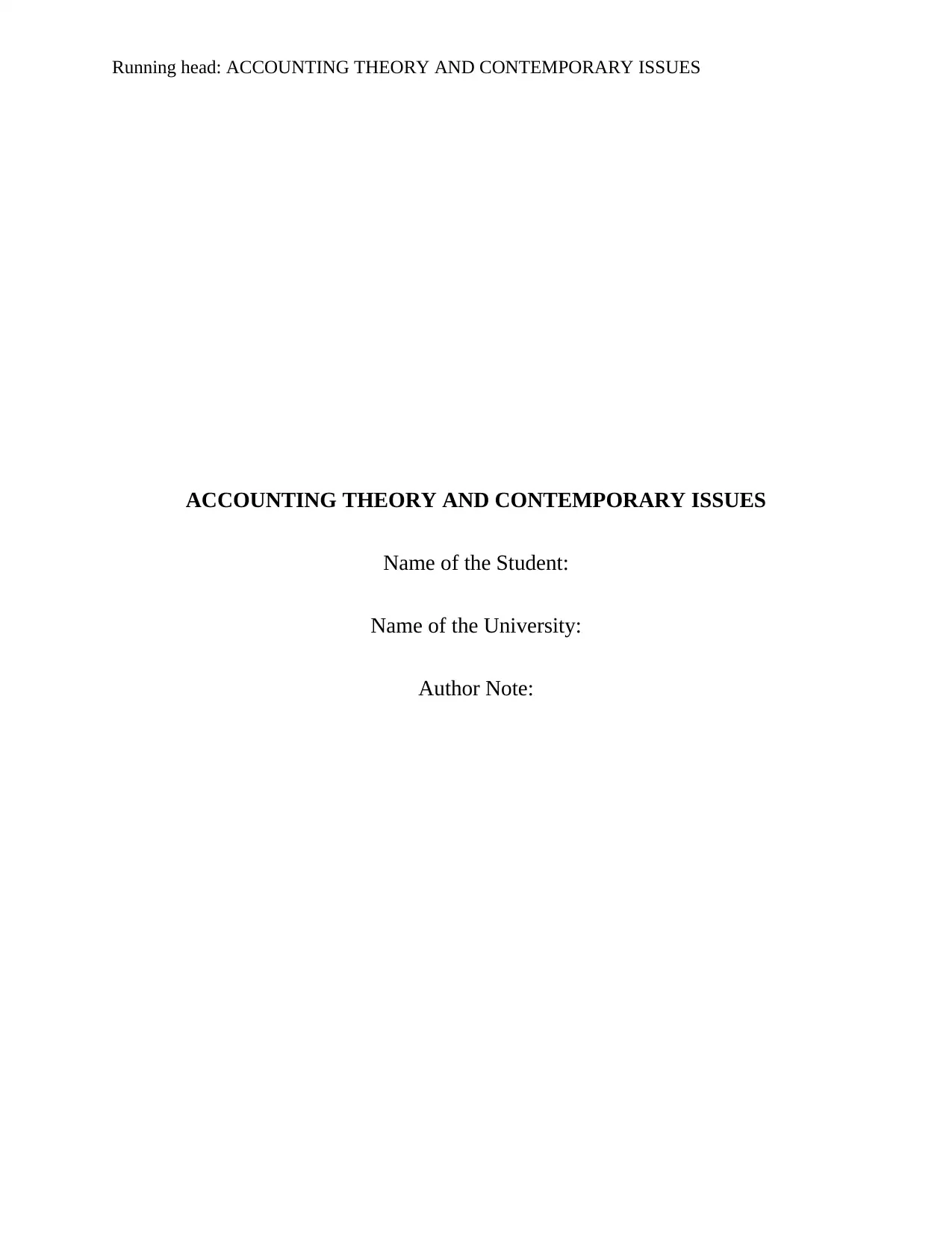
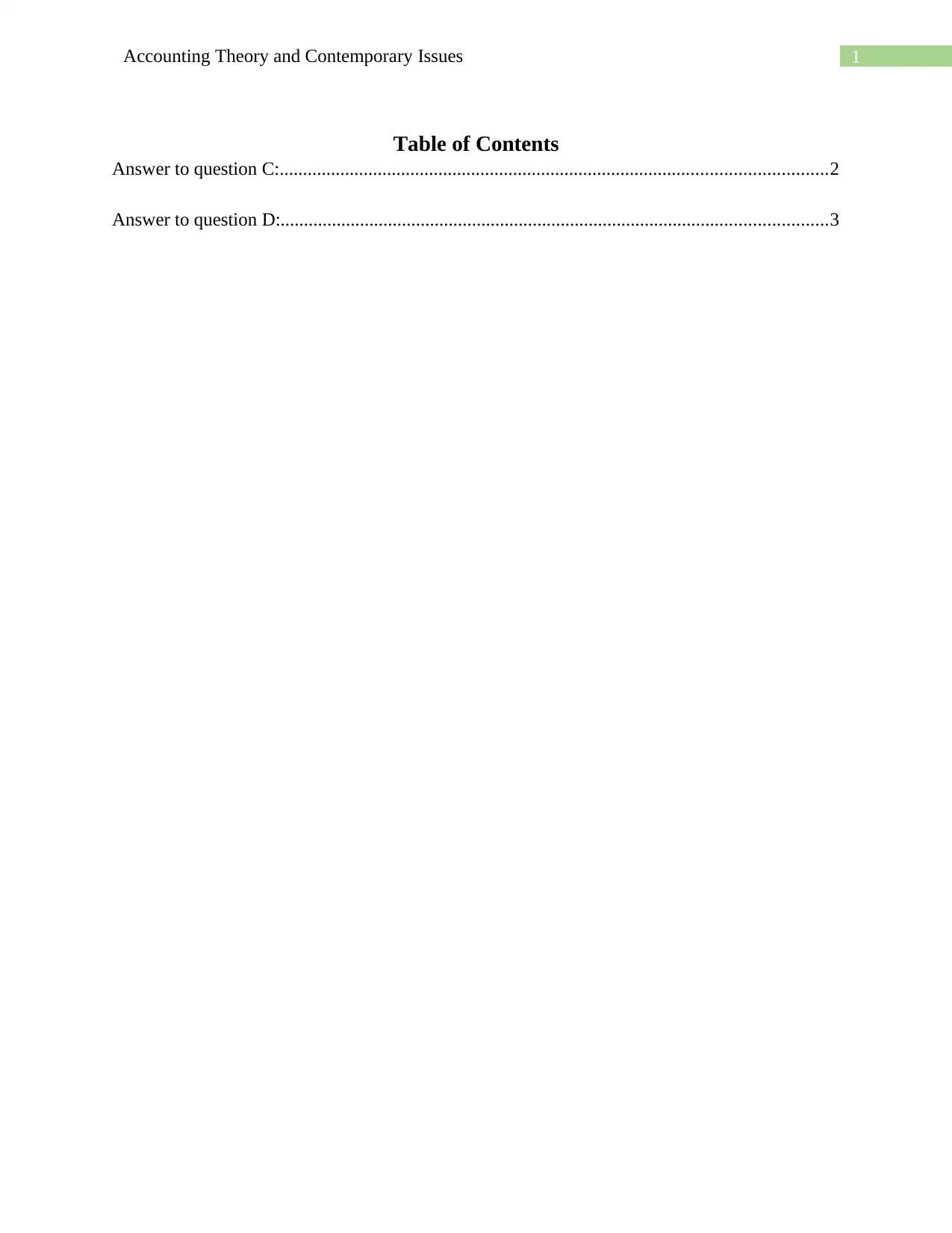
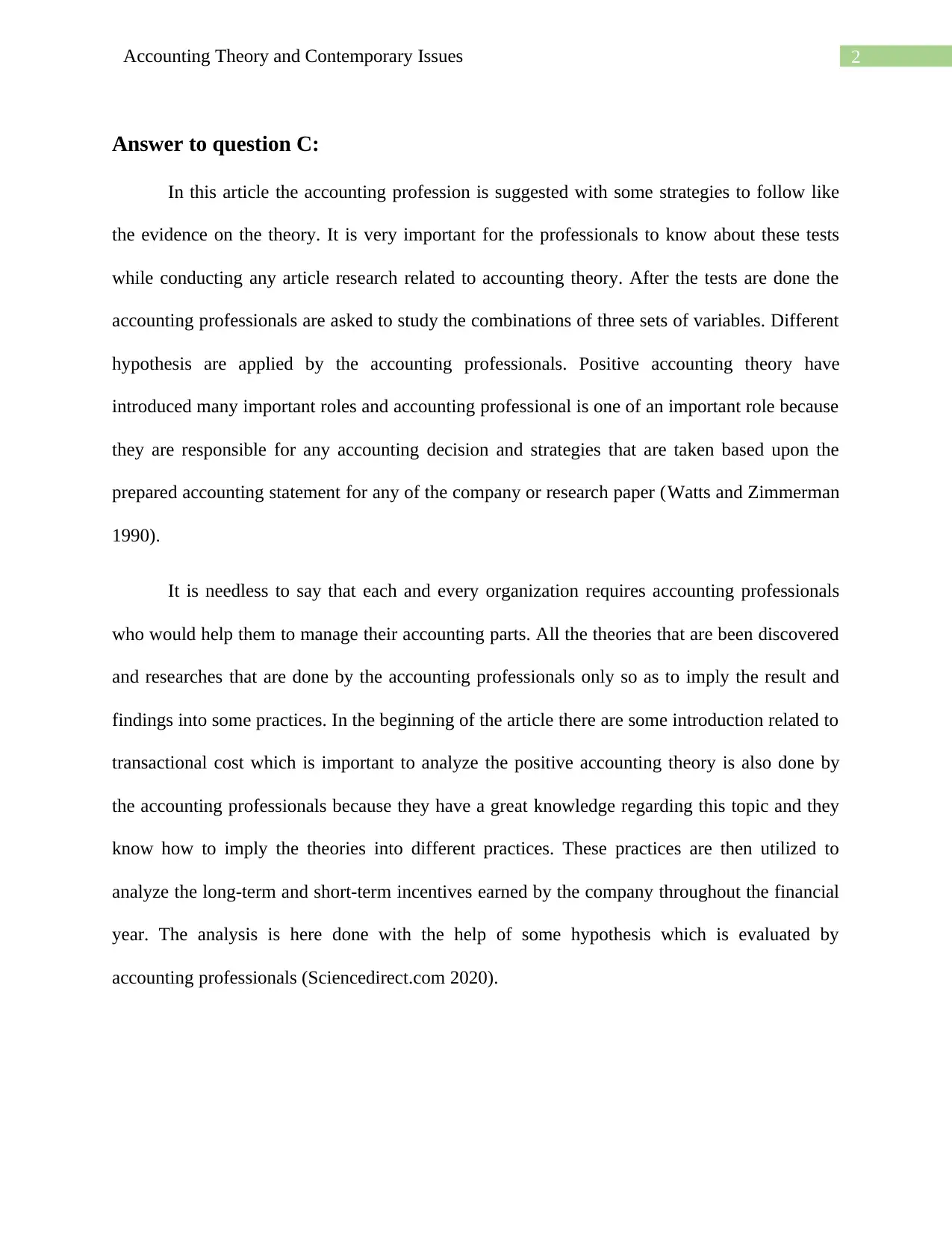

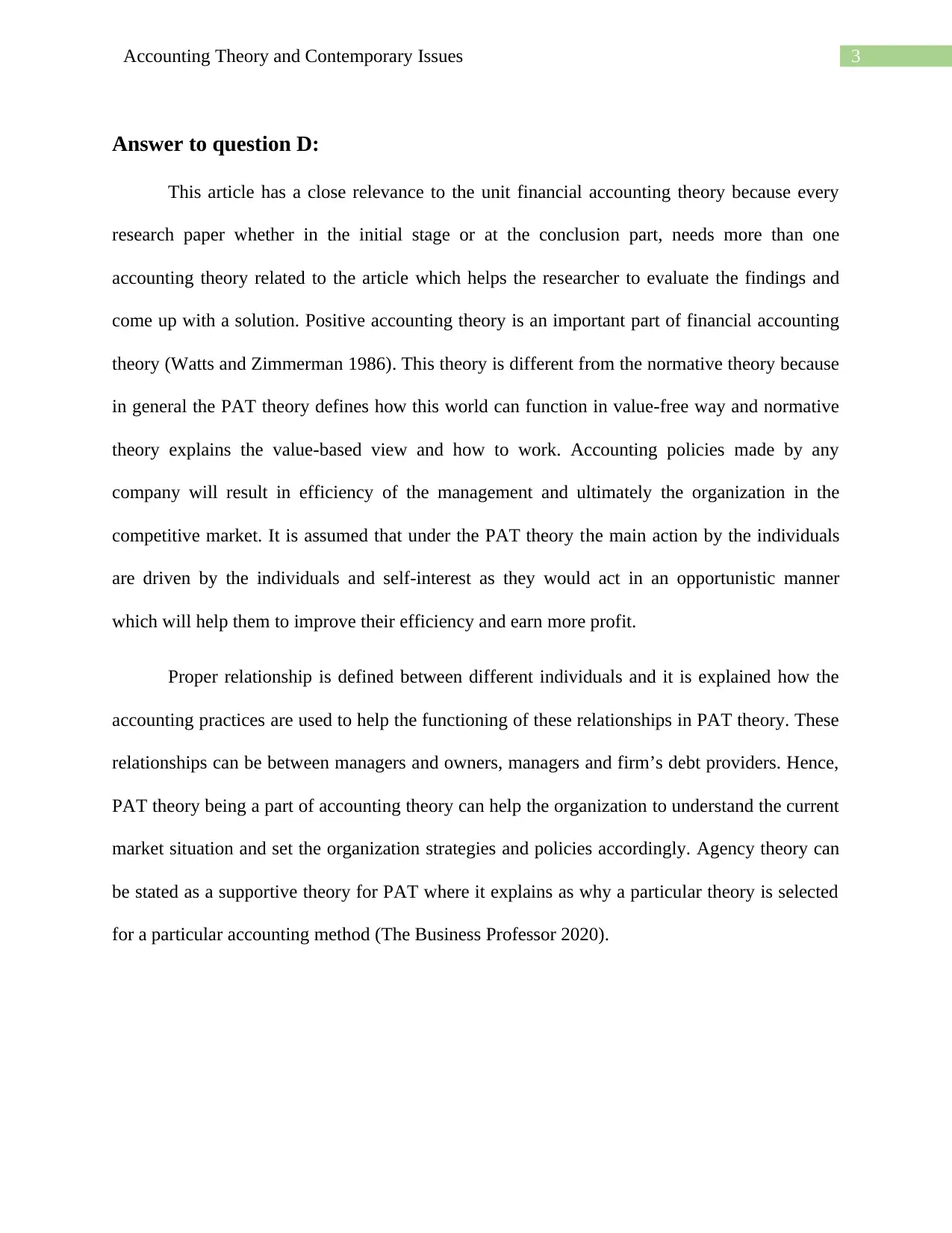
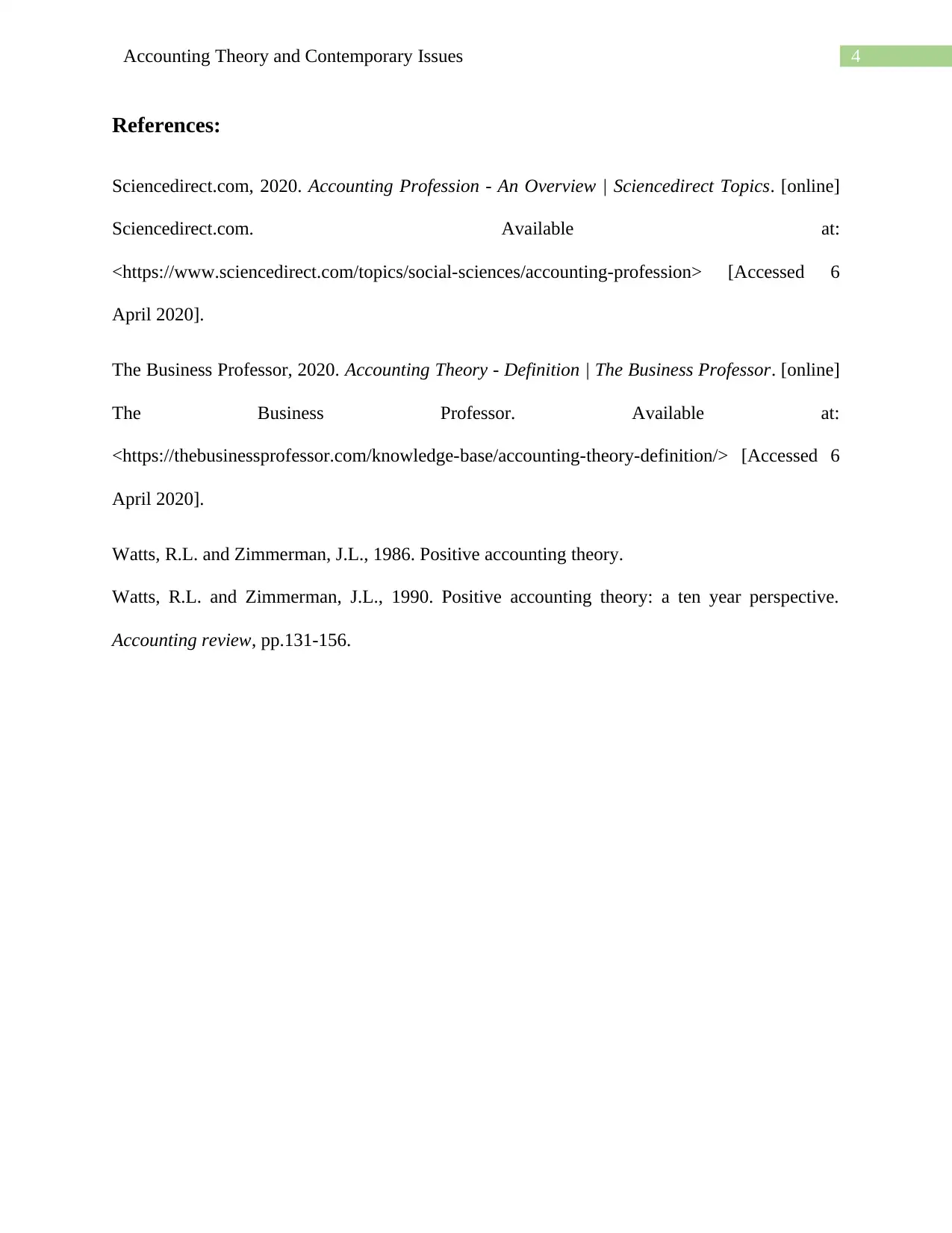






![[object Object]](/_next/static/media/star-bottom.7253800d.svg)